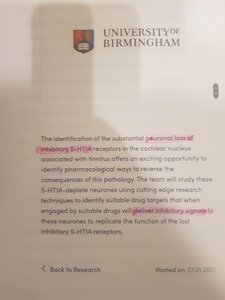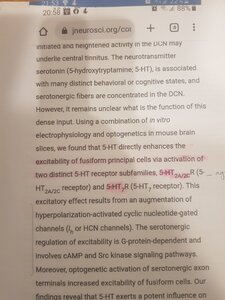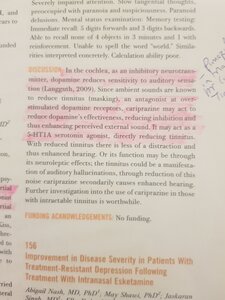Hello,
My doctor wants to put me on Fluvoxamine because of my anxiety. I am currently on Mirtazapine 3.75 mg at night to get better sleep.
Any experiences with Fluvoxamine?
I have. I am currently at 100 mg of Fluvoxamine.
I did the swap from Sertraline which caused two tones of tinnitus: one at 50 mg and another on 150 mg. I only insisted because I thought that it might be something that had always been there but I never paid attention. I entertained this thought due to some hearing loss on the audiograms but then the second tone made my mind about playing with Serotonin.
About Fluvoxamine, the swap was fine and I feel like the tinnitus level didn't change when I switched.
BUT... I am in a sub-optimal dose for OCD and the two times I tried to updose from 100 mg to 125 mg, my tinnitus got more piercing and went back to the baseline after lowering the dose back.
Your experience can be different as I don't know the cause of your tinnitus. I had used antidepressants for more than a decade in total and had no issues until when I tried Sertraline.
Before Sertraline, I was taking Clomipramine, and had already taken Paroxetine and Fluoxetine, all them with no tinnitus. Maybe there is a sort of cumulative effect? I don't know.
Unfortunately, there is no guarantee you will or will not experience a worsening of tinnitus. It's a rare side effect I guess. There are people for whom Paroxetine triggered tinnitus, while I didn't have any issues tinnituswise.
I miss being able to max out the dose of antidepressants without worries about tinnitus. My OCD wasn't an issue when using the proper doses.
I think there is a study with the prevalence of tinnitus for each drug in a particular population. Just be cautious because I remember the sample size of people on Escitalopram was small and it's easy to misinterpret the results. Actually, I think Escitalopram is one of the SSRIs I see more anedoctal reports of tinnitus.
Anyway, good luck and I hope you find a way to feel fine with or without meds!

 Member
Member


